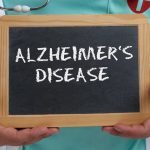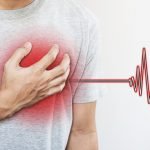Lately, numbers of my friends have taken up crossword puzzles, keeping their fingers crossed (does that count as a double-cross?) that the endeavor might forestall the onset of Alzheimer’s disease or some other form of dementia. They’ve read somewhere that a puzzle a day keeps dementia away,1 Jagan A. Pillai, Charles B. Hall,Dennis W. Dickson,et al. “Association of Crossword Puzzle Participation with Memory Decline in Persons Who Develop Dementia.” J Int Neuropsychol Soc. 2011 Nov; 17(6): 10.1017/S1355617711001111. http://www.ncbi.nlm.nih.gov/pmc/articles/PMC3885259/ while plenty of articles in the popular press offer additional advice about how to stay sharp into the golden years. Harvard Health prescribes exercise plus a Mediterranean diet, getting enough zzz’s, and learning new things.2 “What can you do to avoid Alzheimer’s disease?” January 2017. Harvard Health Letter. 24 January 2017. http://www.health.harvard.edu/alzheimers-and-dementia/what-can-you-do-to-avoid-alzheimers-disease AARP suggests socializing more, walking more, and keeping your head from getting banged.3 Emling, Shelley. “5 Lifestyle Tweaks to Help Ward Off Dementia.” 1 June 2017. AARP. 25 January 2018. http://www.aarp.org/health/brain-health/info-2017/lifestyle-changes-to-prevent-dementia-fd.html Other sources advise returning to school, playing cards, learning a new language, taking up a musical instrument.
But what if someone you love neglected to do these things (or did them with no benefit), and now can’t remember how to tie shoes? Popular intelligence tells us that once mental decline starts, Alzheimer’s is like a locomotive that derails brain function in a sad, inevitable, and irreversible trajectory. But must that be necessarily so? What evidence do we now have that there’s hope for reversing damage done once Alzheimer’s starts? Given that Alzheimer’s affects at least 5.6 million in the US alone, there’s plenty of research being done and some hope, apparently, on the horizon.
One of the more recent breakthroughs involves an enzyme called HDAC2 that blocks normal brain processing in Alzheimer’s patients by turning off certain genes so that they can’t function.4 Trafton, Anne. “Blocking enzyme linked to Alzheimer’s may reverse memory loss.” 8 August 2017. Science Daily. 26 January 2018. http://www.sciencedaily.com/releases/2017/08/170808150001.htm Researchers have assumed that if they could only find a way to disable HDAC2, they might be able to vanquish the effects of Alzheimer’s, but attempts to do so have consistently failed, generating unacceptable side effects. Then this past summer, a group of MIT scientists managed to successfully target HDAC2 in experiments with mice. After making a few tweaks, they restored pathways to long-term memory in the mice.
Study director Li-Huei Tsai explains, “We think that HDAC2 serves as a master regulator of memory gene expression, and during Alzheimer’s disease it’s elevated so it causes an epigenetic blockade of the expression of those memory genes. If we can remove the blockade by inhibiting HDAC2 activity or reducing HDAC2 levels, then we can remove the blockade and restore expression of all these genes necessary for learning and memory.”
Of course, a mouse remembering that it prefers Gouda to Muenster isn’t the same as your mother remembering who you are. The scientists have a long way to go before they’re able to package their discovery into a usable drug form, but the good news is that they’re actively working on it and now are hot on the trail.
Meanwhile, others are looking into more natural fixes with some success. One study found that simply supplementing with probiotics had a significant impact on mental decline.5 Akbari, Elmira et al. “Effect of Probiotic Supplementation on Cognitive Function and Metabolic Status in Alzheimer’s Disease: A Randomized, Double-Blind and Controlled Trial.” 10 November 2016. Frontiers in Aging That research grew out of evidence indicating an association between lack of diversity in gut bacteria and Alzheimer’s, and since probiotics restore gut bacteria, scientists tested whether taking probiotics would reduce Alzheimer’s symptoms.
Also, as Jon Barron has written before, taking a good quality probiotic may help to reduce gut inflammation. Scientists suspected that in so doing, they might also reduce other types of inflammation, including the inflammation associated with dementia. The theory was that inflammation plays a key role in Alzheimer’s, probiotics may reduce gut inflammation, and so, in effect, taking probiotics might reduce inflammation that’s damaging cognitive function.
The scientists gave 30 Alzheimer’s patients probiotics for two months, and another 30 patients received a placebo. The results were startling. The Alzheimer’s group showed a significant decrease in inflammation markers by the end of the study, but the control group, in contrast, averaged a 45 percent increase in inflammation. Even more importantly, the Alzheimer’s group showed enormous improvements in cognitive test performance, going from 8.67 up to 10.57 on the mini-mental-health exam used by the research team. On the other hand, any score under 12 indicates severe Alzheimer’s damage, and in fact, any score under 24 means there’s at least a little dementia present. While any improvement in score seems a miracle, we need more research to find out if prolonged use of probiotics might boost scores into at least the moderate damage range. Then again, if you’re looking to reduce systemic inflammation, systemic proteolytic enzymes are a more direct approach.
Finally, a third approach with proven results emphasizes lifestyle changes. While many may assume that living a healthier life won’t stop mental decline in Alzheimer’s, Dr. Dale Bredeson of UCLA would beg to differ.6 Kraft, Amy. “Can memory loss in Alzheimer’s patients be reversed?” 21 June 2016. CBS News. 26 January 2018. http://www.cbsnews.com/news/can-memory-loss-in-alzheimers-patients-be-reversed/ Dr. Bredeson has witnessed remarkable success by having his patients institute a 36-point program of lifestyle changes. His MEND program includes such components as following a low-glycemic diet, doing daily exercise for at least 30 minutes, sleeping eight hours per night, practicing stress-reduction techniques, heavy metal detoxing, and supplementation with curcumin, a good antioxidant formula, B-12, pantothenic acid, Resveratrol, bacopa, ashwagandha, and probiotics, among other things. Sounds remarkably close to the Baseline of Health anti-aging program.7 Bredeson, Dale E. “Reversal of cognitive decline: A novel program.” 27 September 2014. Aging. 27 January 2018. http://www.aging-us.com/article/100690/text
In a controlled study using MEND on 10 patients, all six of the patients who had left their jobs because of mental decline were able to return to work, and all showed continued improvement two years later. All patients except one also showed dramatic increases in cognition. The patient who didn’t improve was already in late-stage Alzheimer’s, leading the researchers to conclude that earlier intervention is most effective. One patient who showed only 17 percent functioning in his hippocampus (the region of the brain associated with memory and learning) at the outset had increased to 75 percent after following the MEND regimen for 10 months.
The problem with MEND, of course, is compliance. Even those of us who still have all our wits may have trouble simply getting to the gym regularly, to say nothing of eating well, taking all the supplements and following healthy routines. The researchers believe that assigning health coaches and educating at-home caretakers is the key.
The bottom line is that it sure can’t hurt to follow the Baseline of Health routine for prevention not only of physical problems, but also to promote cognitive wellness (and you might especially want to look at the brain protective capabilities of daily use of an L-carnosine based formula), at least while we wait for the one-pill miracle cure (free from side-effects), to come to market.
References
| ↑1 | Jagan A. Pillai, Charles B. Hall,Dennis W. Dickson,et al. “Association of Crossword Puzzle Participation with Memory Decline in Persons Who Develop Dementia.” J Int Neuropsychol Soc. 2011 Nov; 17(6): 10.1017/S1355617711001111. http://www.ncbi.nlm.nih.gov/pmc/articles/PMC3885259/ |
|---|---|
| ↑2 | “What can you do to avoid Alzheimer’s disease?” January 2017. Harvard Health Letter. 24 January 2017. http://www.health.harvard.edu/alzheimers-and-dementia/what-can-you-do-to-avoid-alzheimers-disease |
| ↑3 | Emling, Shelley. “5 Lifestyle Tweaks to Help Ward Off Dementia.” 1 June 2017. AARP. 25 January 2018. http://www.aarp.org/health/brain-health/info-2017/lifestyle-changes-to-prevent-dementia-fd.html |
| ↑4 | Trafton, Anne. “Blocking enzyme linked to Alzheimer’s may reverse memory loss.” 8 August 2017. Science Daily. 26 January 2018. http://www.sciencedaily.com/releases/2017/08/170808150001.htm |
| ↑5 | Akbari, Elmira et al. “Effect of Probiotic Supplementation on Cognitive Function and Metabolic Status in Alzheimer’s Disease: A Randomized, Double-Blind and Controlled Trial.” 10 November 2016. Frontiers in Aging |
| ↑6 | Kraft, Amy. “Can memory loss in Alzheimer’s patients be reversed?” 21 June 2016. CBS News. 26 January 2018. http://www.cbsnews.com/news/can-memory-loss-in-alzheimers-patients-be-reversed/ |
| ↑7 | Bredeson, Dale E. “Reversal of cognitive decline: A novel program.” 27 September 2014. Aging. 27 January 2018. http://www.aging-us.com/article/100690/text |












Like many diseases of our
Like many diseases of our time I feel that there are many that don’t want a cure; there’s too much money to be made as people suffer. My mother was in a care facility at the end of her journey with Alzheimer’s that was owned by one of the major insurers in this country. Her monthly rate was nearly $7,000.00 a month and it increased each new year. This facility was a 72-bed facility and one of three that they owned in her city. It was at capacity almost 100% of the time. You can see what a big money maker that is.
I do feel that probiotics are key. I asked the facility she was in and her hospice nurse to give them to her daily. I was scoffed at and told it would be a waste of money (my money – not theirs) and that there would be a great risk of her aspirating on them (they were liquid). So whenever I would visit, I lived 180 miles away, I would sneak them in and give them to her when we were alone in her room. I always saw an improvement in her, nearly immediately. On the days I was in town for several days in a row it really made a difference. By the way, she never once aspirated and my father fed her daily even at the very end when we were told she was transitioning and no longer needed food for what her body was doing. You really have to be the advocate for your loved one and be there at all times even when they are in a care facility with and excellent reputation.
Thank you for sharing!
Thank you for sharing!
Thank you for this article.
Thank you for this article. I am reading Dr. Dale Bredesen’s book “The End of Alzheimers. He writes with great clarity about what Alzheimers really is and protocol developed that has done remarkably well for some people. The KEY IS compliance. And the earlier someone recognized changes in themselves and takes action the better.
I have been taking some of your supplements and have recommended them to others. Love them! Thanks for all your insightful articles. You know your stuff!
Thank you!!
Thank you!!